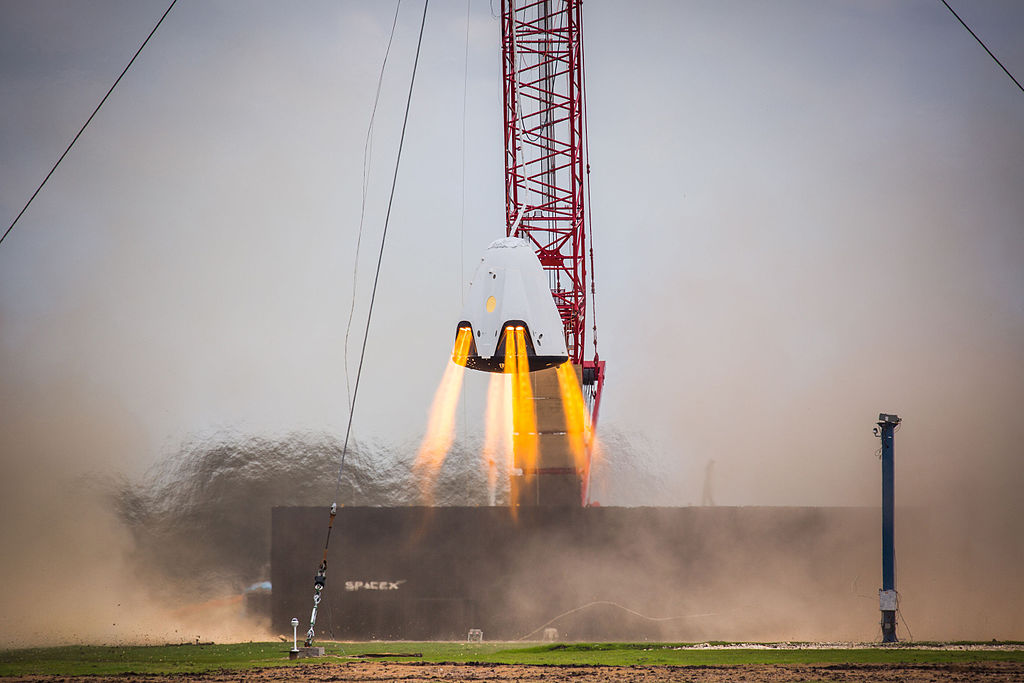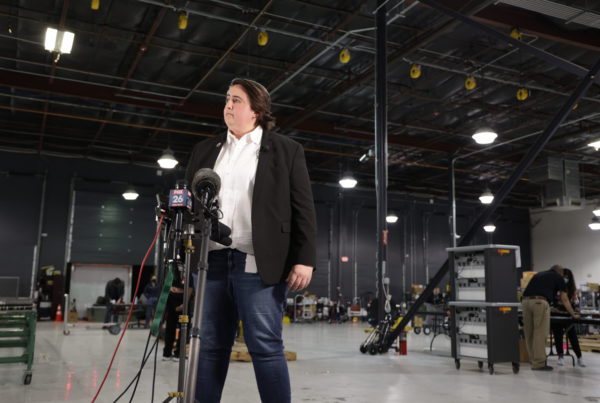New research shows that the space industry brings Texas $11 billion per year, and 100,000 jobs. But economist Ray Perryman of The Perryman Group says that despite a high growth rate, Texas still hasn’t gotten its fair share when it comes to space industry investment. To keep the momentum going, he says, the state should invest more in education, and focus on providing a welcoming environment for knowledge workers.
Listen to the interview above or read the transcript below.
This transcript has been edited lightly for clarity:
Texas Standard: How much does space contribute to the Texas economy in terms of dollars and jobs?
Ray Perryman: The totality of everything that goes into the space economy right now – because it’s several different industries that are combined – it’s about $11 billion a year in gross product. It’s about 100,000 jobs when you include all the multiplier effect. So it has a significant impact right now.
What about nationally? I would imagine that there would be ripple effects from Texas’ space industry.
Well, strangely enough, and this surprised me a little bit, we actually don’t have as big a market share of the space industry as we have in the overall economy. In other words, we are not a leader in the industry as of yet, and that’s changing very, very rapidly. And we think it will change a lot with SpaceX and Blue Origin and a lot of other things. But in the U.S. economy today, space supports about 1.7 million jobs and about $200 billion in gross product, and we don’t quite have our fair share of that yet.
Wow. So are you suggesting that Texas needs to position itself to better take advantage of what’s happening in the industry? Is that one reason why you wanted to talk about this in your research?
I think the short answer is we already have. We’re gaining market share in the industry very quickly. You see a lot of publicity about it right now. But you take pieces of the industry, such as satellite manufacturing and that sort of thing. We simply don’t have the same level of presence that a lot of other places do. But with what’s going on right now, the big investments that are taking place to the factories, the launch sites and everything else that’s going on right now. Our market share is rising very rapidly, and we think that as we look at into the future we’re going to become the dominant player in this industry.
Let’s talk a little bit about how things have changed. Back in the day, the space industry meant NASA and all its suppliers, by and large. But the space economy in Texas has certainly diversified. And of course, you’ve mentioned some of these major players –SpaceX and Blue Origin – and a lot of smaller players that perhaps people haven’t heard about. What’s happening?
There’s no question about that. And any time you have something like, take the gigafactory, for example, or the other rocket factory that Elon Musk has in Texas. Anytime you build something of that magnitude, over time, other companies are going to cluster around it, suppliers and others. We’ve seen that with a lot of industries – when the auto industry came to San Antonio, we saw that, when the defense industry came to Fort Worth, we saw that, when the space industry came to Houston in the first place, we saw that. And that’s part of what we’re looking at as we look forward.
Are there any major players that perhaps we should know, other than the obvious ones?
I think at this point in time, the obvious ones are the ones we should focus on. But the part of it we need to think about is, we as of yet don’t have a lot of major locations in the satellite area. As much as we take our satellite TV for granted and think about the disk on our roof, it’s a satellite up in space that makes all that happen. I mean, that’s a part of the space industry that’s grown a lot in recent years, that we really haven’t participated in as much as some other states have.
If Texas does want to get a bigger slice of the space pie, what does it offer to companies that are part of the space industry?
I think the obvious thing is, at this point in time, Texas’ space industry is growing very rapidly. We’re doing a lot of things right. Texas in general has a pretty good business climate. It just won the Governor’s Cup for the most new [corporate headquarters] locations, for the tenth year in a row. Texas is doing a number of things right when it comes to the space industry and others.
But a real linchpin of the space industry going forward – and we found this a lot – what we’re looking at is knowledge workers. And that would involve some long term strategies for Texas that include investing more in education for our young people because we have great demographics in the sense we have a lot of young people.
We have challenging demographics in the sense that we’re not educating them as well as we need to. And then and then in terms of current workforce and future workforce, the people we need to bring in from other places. In many cases, knowledge workers look for a very welcoming type of environment that some of our recent legislation really hasn’t offered.
The American space industry partners with other countries, including Russia, on projects like the International Space Station. Most recently, we have Russia saying that it wants to break off its collaborations with the U.S. and European space partners, and I’m curious how you see that affecting the overall dynamics of growth of the space industry in Texas.
Obviously we are we’re seeing a very unusual situation with Russia right now. There’s a lot of things that are likely to change as a result of what’s going on in Ukraine. And it’s very it’s impossible to know all the implications at this point. I do think the industry has significant momentum, and is going to continue to grow. And if anything, if we had some kind of escalation here, it’s quite likely that we would see a lot of investment taking place in the space industry as a way to resolve and limit some of those conflicts.
If you recall, it was the Cold War that really stimulated the initial investment that that happened in the space industry with NASA coming to Texas. A lot of that was driven by the Cold War and the situation with what was then the Soviet Union. So more than likely because it is a frontier in which things can happen and things can develop, there would probably be a little bit of a net stimulus overall if that happened. But on balance, there’s enough commercial applications, there’s enough activity. There isn’t that demand. I think the industry is going to keep growing regardless.















